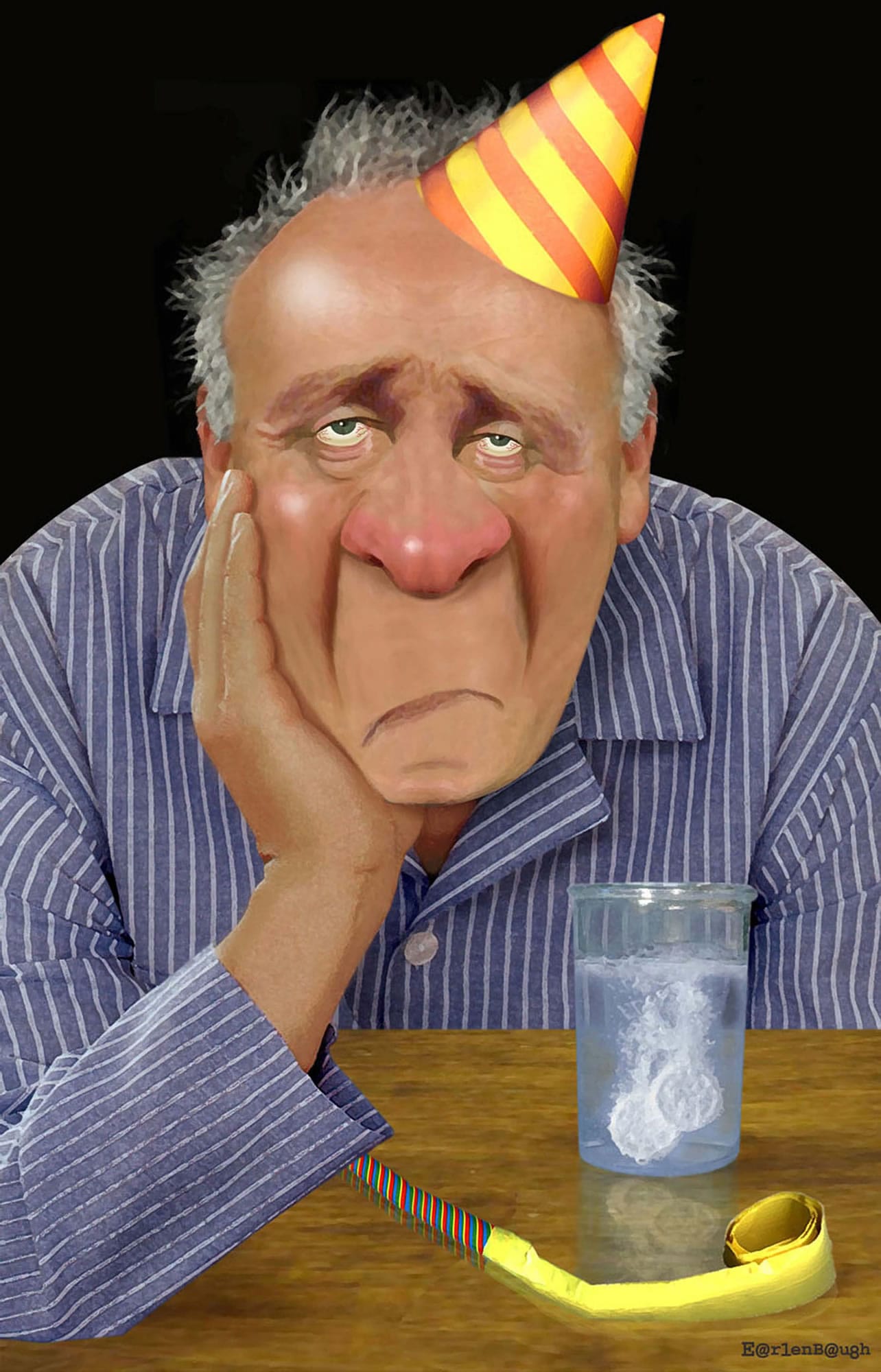Moderate drinking: For men, no more than four drinks on any single day and no more than 14 drinks per week. For women, no more than three drinks on any single day and no more than seven drinks per week.
Heavy drinking: For healthy adults, in general, heavy drinking means consuming more than the single-day or the weekly amounts listed above.
Binge drinking: Drinking so much within about two hours that blood alcohol concentration levels reach 0.08. For men, this usually occurs after about five drinks in two hours. For women, it’s about four drinks.
Source: National Institute on Alcohol Abuse and Alcoholism
If your 2013 New Year’s resolution is to be kinder to your body, you might want to start with your drink glass tonight.
Moderate drinking: For men, no more than four drinks on any single day and no more than 14 drinks per week. For women, no more than three drinks on any single day and no more than seven drinks per week.
Heavy drinking: For healthy adults, in general, heavy drinking means consuming more than the single-day or the weekly amounts listed above.
Binge drinking: Drinking so much within about two hours that blood alcohol concentration levels reach 0.08. For men, this usually occurs after about five drinks in two hours. For women, it's about four drinks.
Source: National Institute on Alcohol Abuse and Alcoholism
Ringing in the new year with a champagne toast or a couple of your favorite microbrews won’t abuse your body as much as taking multiple shots of vodka or throwing back a 12-pack.
The difference isn’t what you drink; it’s how much you drink, said Dr. Michael Albrich, medical director for emergency services at Legacy Salmon Creek Medical Center.
“For most people that have one, two, three drinks and aren’t driving, there’s really not much affect (on the body),” Albrich said. “It’s the binge drinking that occurs this time of year, where you get into the seven-, eight-, nine-drink range, where you see the effects.”
So before partying the night away, consider this: a night of binge drinking affects the heart, brain, kidneys and liver.
Alcohol is absorbed through the stomach and spreads throughout the body, Albrich said.
Alcohol reaches the brain quickly, which accounts for people exhibiting the behavioral affects of alcohol, he said.
“People are directly affected by alcohol because it goes straight to the brain,” Albrich said.
As alcohol reaches the kidneys, it causes people to need urinate more frequently. That, Albrich said, is why binge drinkers tend be dehydrated, often experiencing “cotton mouth,” after a night of drinking.
The liver is where the body metabolizes the alcohol. Some medications, such as birth control pills, will slow the liver’s ability to metabolize alcohol. That means people taking those medications may experience higher blood alcohol levels for a longer period of time, Albrich said.
In contrast, people who drink regularly tend to metabolize alcohol more quickly, he said.
Binge drinkers also might experience an increased heart rate while drinking. But the rapid heart rate goes away once people stop drinking and rehydrate, Albrich said.
Heavy, long-term drinkers develop alcoholic heart disease, which results in a rapid, irregular heart beat, Albrich said.
Rehydrate, rehydrate
For many, a night of binge drinking is followed by a morning hangover.
The dehydration that results from binge drinking is the cause of morning dizziness and lightheadedness. Expanded blood vessels, caused by alcohol, are the culprit for headaches. And the inability to concentrate and loss of interest in usual activities is caused by the alcohol triggering an inflammatory response from your immune system, according to the Mayo Clinic.
The upset stomach after a night of drinking is due to the alcohol irritating the stomach lining, which increases the production of stomach acid and delays stomach emptying. The groggy, fatigued feeling is the result of poor-quality sleep, according to the Mayo Clinic.
While home remedies might sound enticing, Albrich said the key is to rehydrate after drinking.
“Basically, what you have to do is wait until the alcohol is out of your system, and then you can effectively rehydrate,” he said.
Replacing the water loss from drinking is difficult to do until after a person stops consuming alcohol, Albrich said. The kidneys will flush out all liquid, water and alcohol, while a person is drinking alcohol, he said.
“There is nothing really to prevent that dehydration if you drink alcohol,” Albrich said. “The way to prevent it is to not drink so much.”
The amount of alcohol, not what type of alcohol, is what determines how intoxicated a person will become. The equation to keep in mind, Albrich said, is volume multiplied by concentration.
Drinking 8 ounces of 50 percent alcohol (100 proof) has the same effect as drinking 80 ounces of 5 percent beer, he said.
“It’s the total dose of alcohol that creates the effects,” Albrich said.
For those who opt for a night of drinking and kindness to their bodies beginning Jan. 2, Albrich urges the use of designated drivers.
Marissa Harshman: 360-735-4546; http://twitter.com/col_health; http://facebook.com/reporterharshman; marissa.harshman@columbian.com.




